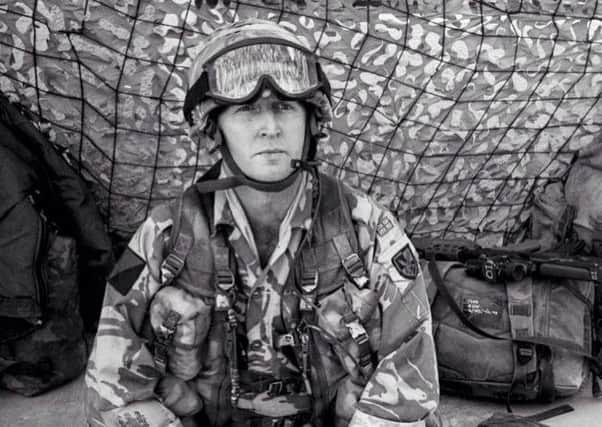War hero says more than Blair to blame


Mr Beattie, who is now an Ulster Unionist MLA, said Tony Blair has ‘long been vilified’ for leading the UK to war in Iraq adding that ‘fault must lie at his door’.
The former PM was instrumental in convincing MPs that Saddam Hussein was producing chemical and biological weapons – resulting in a Parliamentary vote to back the 2003 invasion.
Advertisement
Advertisement
Captain Beattie MC said the UK was ill-prepared for the operation.
Speaking after the Chilcott Report he said: “All the report will now do is formally disclose the Prime Minister was ill-advised by his service chiefs, the intelligence community and those closest to him in government.
“On a daily basis, before the invasion, the men practiced their Chemical, Biological, Radiological and Nuclear (CBRN) defense drills. So it was until the day we crossed the border into Iraq. Poorly equipped, unprepared and misled by our political leaders the invasion of Iraq began. As men and equipment spilled across the border into Iraq politicians continued the masquerade of a just and legal conflict.
“The dossier that gave us the evidence of weapons of mass destruction had been formulated by the United Kingdom’s intelligence services: MI6 and MI5. The Foreign Office would have had an input. The Home Office will not have been ignorant. And the entire Labour Cabinet will have had some hand in promoting the dossier’s deadly message. Parliament itself cannot dodge censure. Many MPs allowed themselves to be misled and voted for war. So did our top military leaders. Their collective eagerness to please led to a hurried deployment, beleaguered by a lack of planning and poor force generation.
Advertisement
Advertisement
“Soldiers without body armour, with no desert clothing or boots, no ammunition for vital weapons systems and poor communications equipment, we crossed into Iraq. As the Regimental Sergeant Major my role was to take control of the enemy prisoners of war. What I found was wretched individuals that appeared nothing like an enemy.”